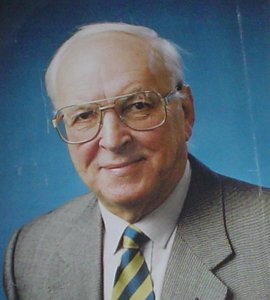When the searchlights came
Uttoxeter, hardly knew that the war was on, although our young men and women, kept leaving, and rationing was severe. One change to us all on the Park side of the town, was the opening of the bypass in 1939. The war stopped operations, and of the dual carriageway (a source of wonder to me) only one lane was open, the nearside side, facing Stoke, the remaining lane, remained in its raw construction state, frequently filled with water ( not completed for 2 years after the war ).
We local children noticed the arrival of large army lorries, on a field abutting the unused lane of the bypass about 1940. Nissan huts went up, concrete roads laid, and to our amazement an assault course, with death slide over the River Tean was constructed. Various rumours circulated. It was to be a anti aircraft battery, then a barrage balloon site, then a prisoner of war camp, but we finally had the answer, four massive searchlights and battery vehicles. Sentries were posted, the usual notices under the defence regulations, "That loiters will be shot, if not answering the guard"
To everyone's amazement, there were no fences erected, only the bypass railings as a defence perimeter, five barred with posts. Although an Official Secret we all knew when the lights were to be tested. Hundreds of townspeople stood by and on the the railings. We watched with awe as the lights stabbed into the sky. Some old soldiers, asked "where were the guns" No official answers, but the soldiers talked of Coven, near Wolverhampton. Even I failed to understand the value of the lights picking up a plane, with nothing to shoot at it. Greater minds then mine, had chosen the site.
The lights remained in position for about 3 years, then suddenly, all disappeared. The exact spot was on field belonging to the Povey Family. I remember, an elderly lady called May Povey. There was an old mill on the farm, which abutted the River Tean. As air raid warnings waned, we lost interest in watching the lights, and few noticed, when they left. A short period, from the Second World War, now remembered by few.
John Mellor
Subscribe to:
Post Comments (Atom)




No comments:
Post a Comment